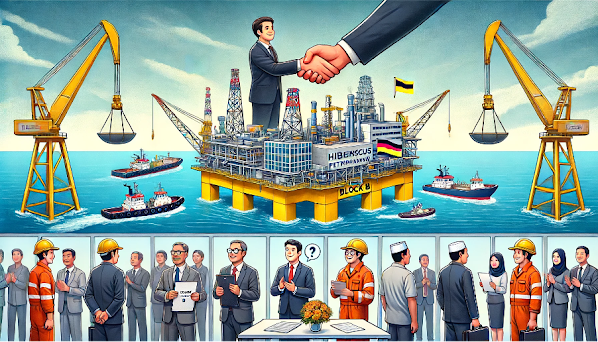July 7, 2024
His Majesty Sultan Haji Hassanal Bolkiah Mu’izzaddin Waddaulah, the Sultan and Yang Di-Pertuan of Brunei Darussalam, emphasized the critical importance of addressing mental health issues affecting his subjects, particularly the younger generation, in his nationwide broadcast marking the start of the new Hijrah year 1446.
In his address, His Majesty underscored the growing prevalence of mental health problems in the nation, noting that over 11,000 individuals, both children and adults, are currently receiving psychiatric and clinical psychology treatment at Raja Isteri Pengiran Anak Saleha Hospital. He highlighted the necessity of strengthening and expanding existing mental health initiatives to combat this rising concern effectively.
Government's Efforts and Achievements
The Sultan commended the integrated efforts made by the government to tackle mental health issues. The Ministry of Health has introduced various measures, including the enactment of the Mental Health Order 2014, which laid the foundation for structured mental health governance. Additionally, hospital-based psychiatry and psychology services have been extended to selected health centres in the community.
In 2017, the Mental Health Strategy Unit was established within the Health Promotion Centre to focus on mental health and well-being promotion. Another significant step was the introduction of the national mental health helpline, Talian Harapan 145, in 2019, ensuring accessible support for those in need.
The Brunei Darussalam Mental Health Action Plan 2022-2025 represents a comprehensive approach to addressing mental health challenges. Developed through extensive consultations with various stakeholders, the plan includes four strategies, thirteen priority actions, and thirty-two activities aimed at strengthening leadership, improving mental health services, promoting mental well-being, and enhancing research capacity.
People's Perspectives
Despite these initiatives, the nation continues to grapple with the growing incidence of mental health issues. Public opinion suggests that economic stress, low wages, and limited entertainment options contribute significantly to mental health problems in Brunei. Some citizens have humorously pointed out the disparity between the lavish lifestyles showcased on social media and their struggles to make ends meet, highlighting the societal pressures exacerbating mental stress.
Others have raised concerns about the impact of dietary habits on mental health, advocating for greater education on the benefits of healthy eating and the risks associated with ultra-processed foods. The link between gut health and mental well-being is also noted, with calls for government action to promote better nutrition and impose taxes on unhealthy food and drinks.
Additionally, there is a rising concern about the younger generation's literacy regarding the importance of spiritual health and religion. Many citizens believe that the inadequate emphasis on these aspects is contributing to the mental health crisis. They wonder if the new education policy, which integrates religious education with general academics, will help address these issues. Moreover, questions are being raised about the effectiveness of moral education in schools and whether it is sufficiently comprehensive. Concerns also extend to parenting practices, with some pointing to inadequate parenting as a significant factor causing mental health issues in children.
Further compounding the issue is unemployment and the collapse of family institutions. The number of divorce cases in Brunei rose sharply to 593 last year, up from 409 in 2021, indicating a worrying trend. This increase is seen as a significant contributing factor to mental health issues, with the breakdown of family support systems exacerbating the crisis.
Unemployment remains a major concern, with the number of jobless individuals rising to 11,880 in 2023 from 11,445 in 2022. The situation is particularly alarming among graduates. On average, Brunei has had 15,184 unemployed persons annually from 2017 to 2023, peaking at 19,223 in 2018 and hitting a low of 10,956 in 2021. This persistent unemployment is significantly contributing to the mental health crisis, as financial instability and joblessness are key stressors affecting many individuals' well-being.
Conclusion
His Majesty's call to address mental health issues reflects a deep concern for the well-being of his people. The government's efforts, as outlined in the Mental Health Action Plan, signify a robust commitment to fostering a mentally healthy and resilient nation. However, the public's feedback underscores the need for ongoing dialogue and additional measures to address the root causes of mental health problems comprehensively.
As Brunei moves forward, the collaborative efforts of government, communities, and individuals will be crucial in creating an environment where mental health is prioritized, and all citizens have the support they need to lead fulfilling lives.


.jpeg)





